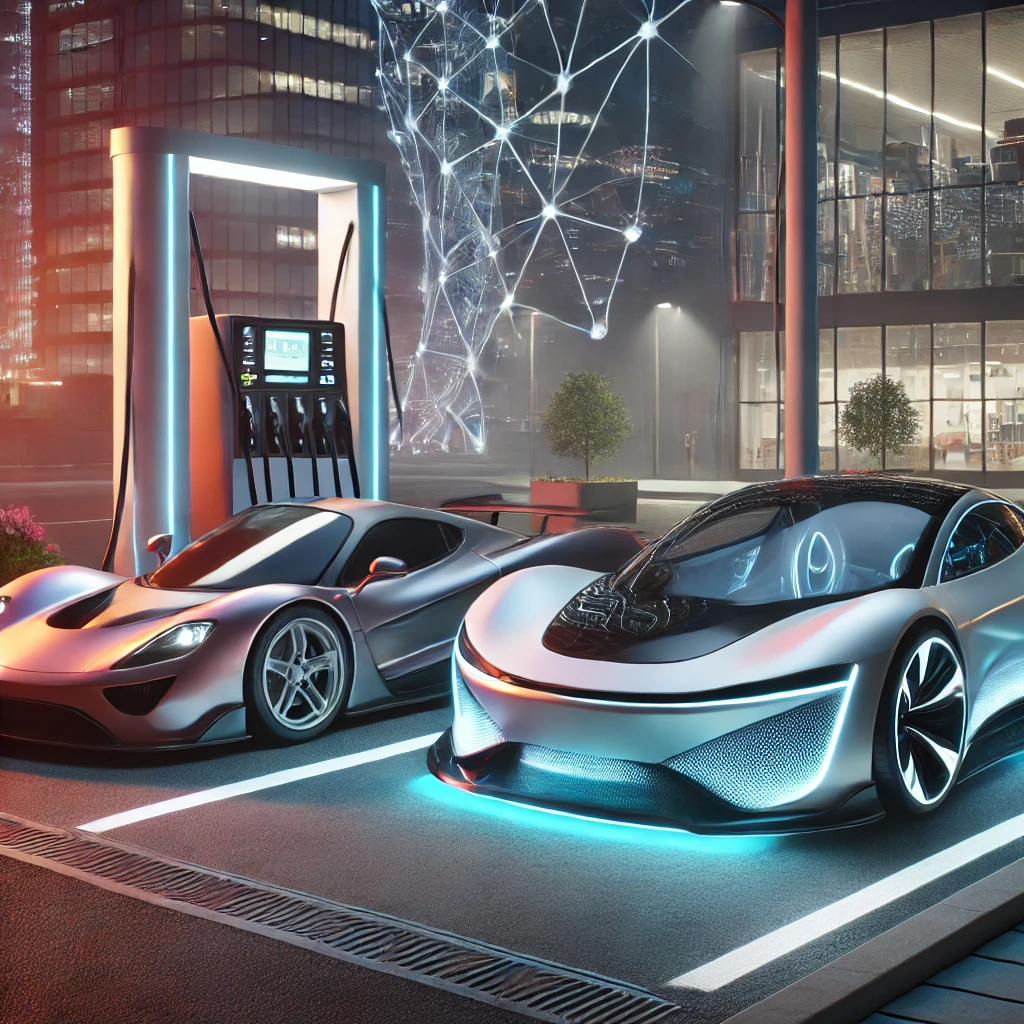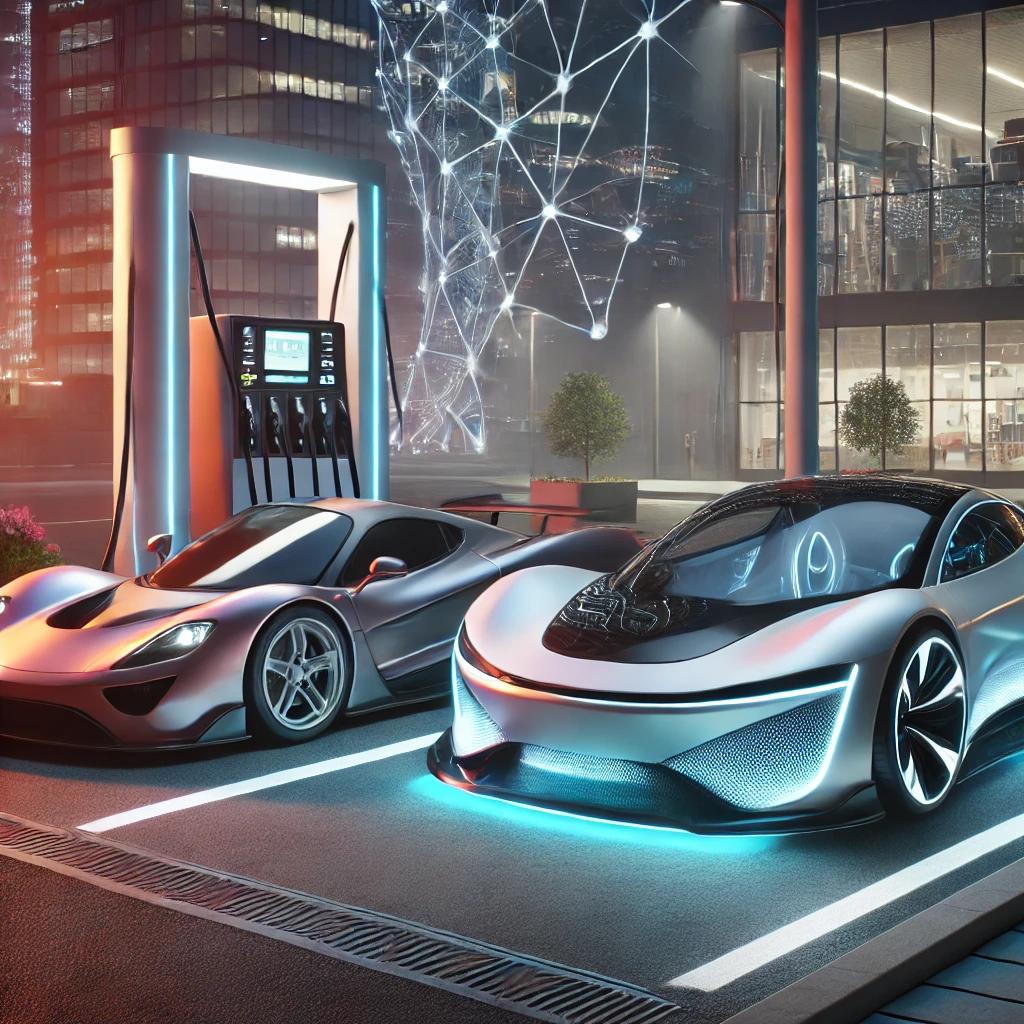
Gasoline Car vs. Electric Sports Car: What Sets Them Apart?
Introduction
Electric sports cars are transforming the automotive industry with their innovative technology and environmental advantages. This article explores the key differences, benefits, and drawbacks of gasoline and electric sports cars, guiding you to make an informed decision.
1. Gasoline Car vs. Electric Sports Car: The Basics
Gasoline Cars: Mechanics and Characteristics
Gasoline cars are powered by internal combustion engines, which burn fuel to produce energy. This process involves mixing air and fuel, ignited by a spark, to create mechanical power. Gasoline engines have been dominant for over a century due to their reliability and flexibility. However, they emit CO2 and other pollutants, contributing to environmental challenges.
Electric Sports Cars: How They Operate
Electric sports cars use electric motors powered by batteries. These vehicles convert electrical energy into motion, offering a quiet and efficient ride. Electric motors deliver instant torque, providing superior acceleration. With fewer mechanical components than gasoline engines, electric cars require less maintenance and have a longer operational lifespan.
Performance Comparison
The main difference in performance lies in how power is delivered. Gasoline cars offer gradual acceleration, while electric sports cars provide instantaneous torque, allowing for faster starts. Additionally, electric cars have a lower center of gravity due to their battery placement, enhancing stability and handling.
2. Advantages of Electric Sports Cars
Exceptional Acceleration and Quiet Operation
Electric sports cars excel in delivering seamless acceleration. Unlike gasoline cars that require gear shifts, electric motors provide smooth power delivery. The absence of engine noise enhances the driving experience, making it more enjoyable and less stressful.
Environmentally Friendly Design
Electric sports cars produce zero tailpipe emissions, reducing their environmental impact. They rely on renewable energy sources for charging, further contributing to sustainability. For eco-conscious consumers, this is a significant advantage.
Lower Maintenance Costs
With fewer moving parts, electric sports cars have lower maintenance requirements. Components like oil filters, spark plugs, and exhaust systems are absent, reducing the likelihood of mechanical failures. Over time, this results in substantial cost savings.
3. Disadvantages of Electric Sports Cars
Charging Time and Infrastructure Limitations
Electric vehicles take longer to refuel compared to gasoline cars. While rapid chargers are available, they still require more time than a traditional fuel pump. Moreover, charging station availability varies by region, which can be inconvenient for long trips.
Higher Initial Costs
Electric sports cars typically have higher upfront costs due to their advanced technology and battery systems. Although government incentives and tax breaks may offset these costs, they remain a consideration for potential buyers.
Range Limitations
Despite advances in battery technology, range anxiety remains a concern for many drivers. Long-distance travel requires careful planning to ensure access to charging stations. This limitation contrasts with the convenience of gasoline cars, which can refuel almost anywhere.
4. Advantages of Gasoline Cars
Convenience for Long-Distance Travel
Gasoline cars offer greater flexibility for long trips, thanks to the widespread availability of fuel stations. They provide reliable range without the need for extended stops, making them ideal for road trips and rural areas.
Faster Refueling
Refueling a gasoline car takes just a few minutes, a significant advantage over electric vehicles. This speed allows drivers to quickly resume their journeys, reducing downtime during travel.
The Driving Experience
Many enthusiasts appreciate the sound and feel of gasoline engines. The engine roar and gear shifts add a visceral element to the driving experience that electric cars, despite their performance, cannot replicate.
5. Choosing the Right Vehicle for You
Assessing Your Needs
Choosing between a gasoline car and an electric sports car depends on your driving habits and lifestyle. Consider factors such as daily commute, travel frequency, and access to charging infrastructure when making your decision.
Cost Comparison
Evaluate the total cost of ownership, including purchase price, fuel, and maintenance. While electric cars have lower running costs, their initial investment is higher. Understanding these dynamics helps you make a financially sound choice.
Future-Proofing Your Purchase
As automotive technology evolves, electric vehicles are expected to become more affordable and efficient. Investing in an electric sports car now could position you for future trends and benefits.
Conclusion
The decision between a gasoline car and an electric sports car depends on individual priorities, such as environmental impact, performance, and convenience. Both options offer unique advantages, and understanding their differences ensures an informed choice that aligns with your needs.



Comment